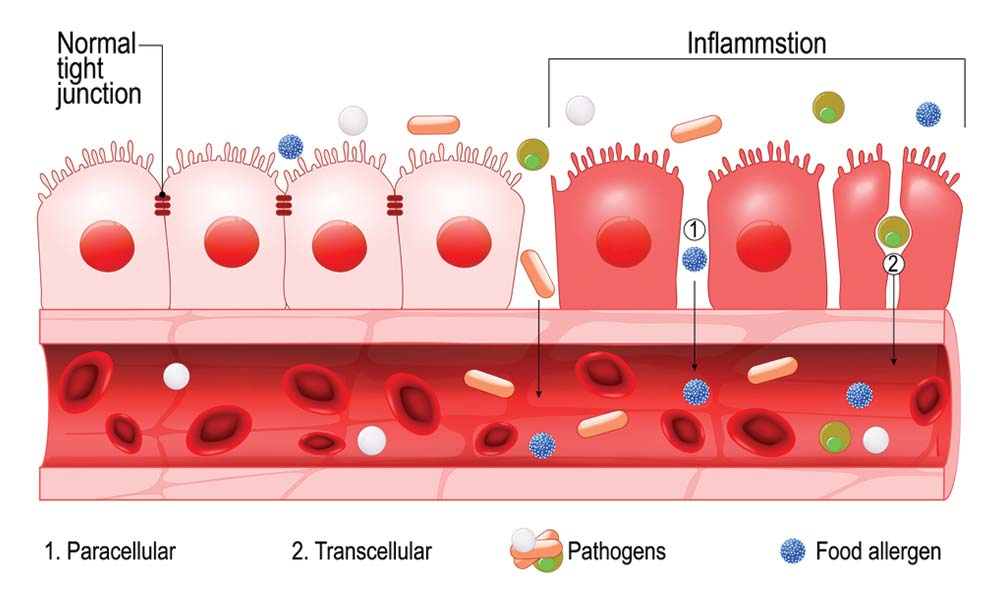When it comes to feeling good, gut health is more than just a wellness trend; it’s a foundational component. One increasingly buzzed-about culprit in the health world is leaky gut. It’s not just about digestion. This problem may also contribute to fatigue, skin conditions, joint pain, and even changes in mood.
So, what is leaky gut? Let’s break it down.
The Basics of Leaky Gut
Your small intestine is a hard worker. It allows beneficial molecules to enter your blood while preventing harmful ones, such as toxins and bacteria, from passing. Consider it like a fine filter.
But sometimes, that filter weakens. The cells in your gut lining separate from one another. When that occurs, noxious substances can “leak” into the bloodstream. This has the potential to stimulate your immune system and lead to persistent inflammation.
This is what many people know as leaky gut — or, in more medical language: increased intestinal permeability.
What Causes the Gut to Leak?
A number of lifestyle choices and health conditions can cause or exacerbate this condition. These are some of the ones that are more widely used:
- Processed foods, and too much sugar in particular, irritate the gut lining.
- Then, sensitivities, such as to food (like gluten or dairy) and alcohol, can come into play.
- Prolonged-chronic stress affects your gut-brain axis and degrades the fence in your intestines.
- The good bacteria in your gut can be damaged by constantly taking antibiotics, or NSAIDS.
- Infections or imbalances such as candida, parasites or bacterial overgrowth can lead to inflammation.
Indications Your Gut Could Be Out of Balance
Since the gut is connected to so many systems in your body, symptoms of leaky gut may manifest in surprising ways:
- Bloating, cramps, diarrhea, or constipation, indicative of digestive problems
- Food intolerances that just appear.
- Fatigue or malaise, which does not improve with rest
- Skin problems or eruptions such as acne, eczema, or rashes
- For brain fog, mood swings, or anxiety
- Aches, pains, or joint stiffness
These signs can also be symptoms of other illnesses, so it is important that they be checked out.
Gut-Friendly Tips and Tricks to Keep It Simple
As Dr. Ruscio told the insider, you don’t need a complex plan to begin healing your gut. It frequently began with a return to basics.
Here’s what helps:
- Eat whole, nutrient-dense foods and avoid processed ones.
- Identify and rule out trigger foods by simple challenges.
- In addition, make sure you get enough sleep and engage in moderate activity on a consistent basis.
- Spending time in nature, engaging in hobbies, or practicing mindfulness are all effective ways to alleviate stress.
- If you have been prescribed supplements like probiotics or glutamine, use them.
It’s rare that gut health is a quick fix! But gradual changes like these really do make a noticeable difference.
Final Thoughts
So, what is a leaky gut? It’s a state in which your gut lining is not functioning as it should be — and it can have far-reaching effects across your body.
Fortunately, the good news is that with the right information and experts like Dr. Ruscio to guide you, you can take steps to get your symptoms back under control. Through education in diet, lifestyle, and gut balance you can rebuild a stronger barrier and recover your health—one way of living at a time.

